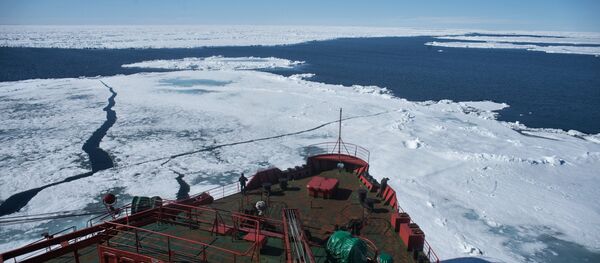Otherwise, the US will commission its newest icebreaker in no less than a decade should the leadership follow its current Arctic strategy, which is also not a given.
Barack Obama views the region as a priority but his hands are tied in more ways than one. "Proposing to accelerate something that isn't being built yet is hard, especially when you've really only got one more budget to propose (come February) and won't be around to 'start' it," Colin Clark observed for the Breaking Defense website.
The current budget of the US Coast Guard, which is responsible for operating this type of vessel, amounts to $1 billion, the approximate cost of an icebreaker. But if manufacturing one seems to be a remote prospect, perhaps leasing could be a solution.
When it comes to the Arctic exploration, no one is better prepared to manage its northern territories, safeguard shipping routes and extract resources than Russia. The country boasts an array of forty icebreakers of all sorts, including nuclear-powered ones, and will introduce a new class of super-nuclear icebreakers by the end of 2020.
Even China, a non-Arctic nation whichever way you slice it, is better prepared to explore the region than the US. At least the country has an operational icebreaker and will commission a new research vessel for the Arctic next year.
"Unlike the Cold War missile gap, the icebreaker gap vis-à-vis China and Russia appears to be a reality," Franz-Stefan Gady wrote for The Diplomat.



